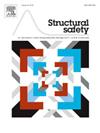This paper proposes a probabilistic framework to calibrate burst strength models of intact and corroded pipelines based on the hierarchical Bayesian method. The approach uses burst test data of intact and corroded pipelines of different steel grades compiled from the literature and accounts for the variations among the data sources. First, the most appropriate burst strength models for corrosion-free and corroded pipelines are adopted. The burst pressure prediction models are categorised under low, medium and high-grade steel classes. Using the hierarchical Bayesian approach model uncertainty factors are derived to calibrate the burst strength models. The mean values and uncertainty of posterior probabilities of the model uncertainty factors are estimated for intact and corroded pipelines in three material categories. This study further investigates the uncertainty propagated by calibrated and non-calibrated models and draws important observations regarding the uncertainty associated with the calibration. The prediction uncertainties follow a non-linear increasing trend as corrosion defect increases. This study's importance is demonstrated with a case study that shows the differences in the uncertainty resulting from the use of the proposed approach compared to the conventional method. Additionally, for corroded pipes, model uncertainty factors are described as a function of defect depth with regression parameters estimated from hierarchical Bayesian-based regression analysis. Finally, a comparison between calibrated and non-calibrated models indicates that the calibrated models provide non-conservative predictions.


